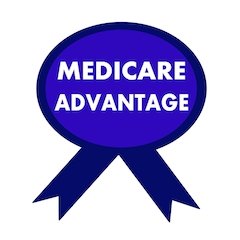Even as approximately 1.5 million new enrollees have joined Medicare Advantage plans in the past year, these health plans have been able to maintain customer satisfaction levels year over year, according to the J.D. Power 2018 Medicare Advantage Study, released June 21.
While this relative stability in satisfaction is consistent with commercial health plan member satisfaction year over year, Medicare Advantage plans still have significant room for improvement in information and communication, coordination of care and cost controls.
“Medicare Advantage plan membership has grown 7.6% from the last year,” said Valerie Monet, Senior Director of the Insurance Practice at J.D. Power. “And that kind of surge can put a strain on member satisfaction. But, Medicare Advantage plans have managed to maintain comparatively high overall satisfaction scores. Some notable opportunities remain that — if addressed successfully — could have a significant effect on satisfaction. Among those, efforts to help beneficiaries better manage and reduce out-of-pocket spending associated with their care and coordinating care between providers are some of the most powerful drivers of satisfaction, yet few plans fully deliver on that capability.”
Following are some of the key findings of the 2018 study:
- Medicare Advantage plans tow the line on member satisfaction: Overall customer satisfaction with Medicare Advantage plans is 794 (on a 1,000-point scale), down a nominal 5 points from 2017, even as enrollment levels in these plans have increased in 48 of the 50 states.
- Members look for help to manage financial burden: One of the primary drivers of Medicare Advantage satisfaction is when health plans actively help members manage their healthcare spending. Still, just 54% of members say their plan actively works to keep out-of-pocket costs low. Compared with last year, members engage less often in cost-management activities that build trust with the plan and drive higher satisfaction levels, an opportunity for health plans looking to build stronger relationships with their Medicare Advantage members.
- Coordination of care drives trust and loyalty: Care coordination services have become a key driver of trust, loyalty and advocacy and have become increasingly common among higher-risk populations. Specifically, among dual-eligible members who receive care coordination services, 61% say they “strongly agree” that their health plan is a trusted partner; 72% say they “definitely will” recommend their health plan; and 77% say they “definitely will” renew with their health plan.
- Better information needed during plan selection: Member satisfaction with the information and communication from their Medicare Advantage plan has declined significantly (-16 points) from last year, and is now the lowest-scoring factor in the overall health plan experience. Aside from opportunities with member onboarding, fewer members recall receiving even one communication from their health plan in the past year. The combination of ineffective enrollment materials, incorrect provider directories and lack of communication throughout the year can negatively influence members’ understanding of what a plan will cover, what resources are available, incurring charges associated with uncovered services/treatments and visiting out-of-network providers.
Medicare Advantage Plan Customer Satisfaction Rankings
Kaiser Permanente ranks highest in Medicare Advantage member satisfaction for a fourth consecutive year, with a score of 841. Kaiser outperforms all other plans across four of the six factors that comprise the overall satisfaction index. Highmark ranks second with a score of 807 and Cigna HealthSpring ranks third with a score of 798.

The study, now in its fourth year, measures member satisfaction with Medicare Advantage plans — also called Medicare Part C or Part D — based on six factors (in order of importance): coverage and benefits (26%); customer service (19%); claims processing (14%); cost (14%); provider choice (15%); and information and communication (13%).
The 2018 Medicare Advantage Study is based on the responses of 3,442 members of Medicare Advantage plans across the United States.
For more information about the 2018 Medicare Advantage Study, visit http://www.jdpower.com/resource/us-medicare-advantage-study.
About J.D. Power: J.D. Power is a global leader in consumer insights, advisory services and data and analytics. These capabilities enable J.D. Power to help its clients drive customer satisfaction, growth and profitability. Established in 1968, J.D. Power is headquartered in Costa Mesa, Calif., and has offices serving North/South America, Asia Pacific and Europe.














Re: Medicare advantage plans called part c or part d; it is my understanding that Medicare advantage is called Medicare part c and may, or may not, include Medicare part D drug coverage.
You are correcting staff now not just agents. Your condition is worsening.
Have you ever considered a good outdoor hobby like archery, or fishing? Hiking is also popular. Just throwing that out there.
Bears.